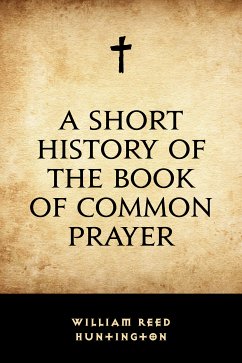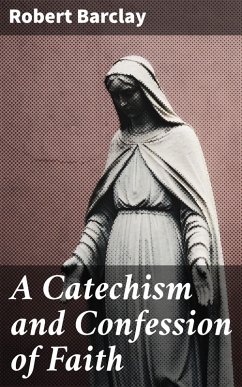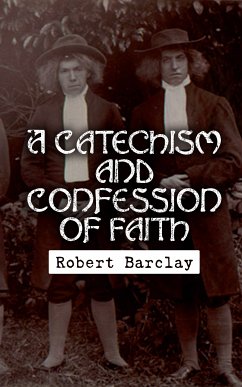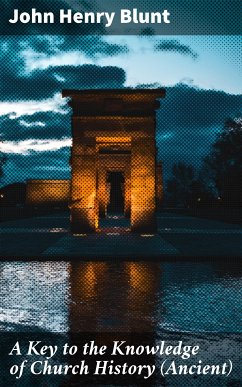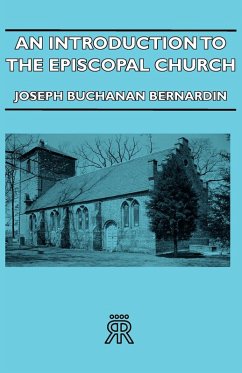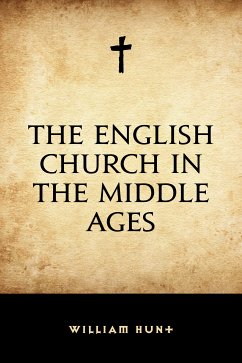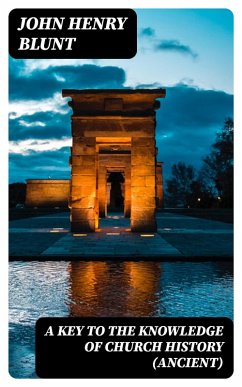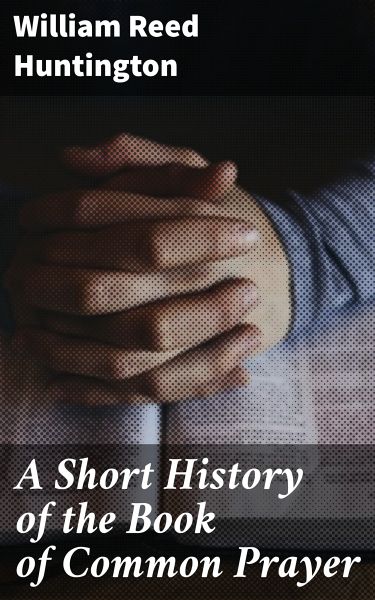
A Short History of the Book of Common Prayer (eBook, ePUB)
Enriched edition. Uncovering the Legacy of Anglican Liturgy and Religious Tradition
Kommentar: Lambert, Logan / Redaktion: Good Press
Versandkostenfrei!
Sofort per Download lieferbar
0,49 €
inkl. MwSt.
Weitere Ausgaben:

PAYBACK Punkte
0 °P sammeln!
In "A Short History of the Book of Common Prayer," William Reed Huntington offers a meticulously detailed examination of one of the most significant liturgical texts in Anglicanism. Through an incisive analysis, Huntington traces the development of the Book from its origins in the early Reformation to its modern iterations, highlighting the social, cultural, and theological influences that shaped its evolution. His prose is both accessible and erudite, intertwining historical documentation with reflective commentary that engages the reader in understanding the complexities surrounding this cen...
In "A Short History of the Book of Common Prayer," William Reed Huntington offers a meticulously detailed examination of one of the most significant liturgical texts in Anglicanism. Through an incisive analysis, Huntington traces the development of the Book from its origins in the early Reformation to its modern iterations, highlighting the social, cultural, and theological influences that shaped its evolution. His prose is both accessible and erudite, intertwining historical documentation with reflective commentary that engages the reader in understanding the complexities surrounding this central text of worship and identity within the Anglican tradition. William Reed Huntington was a prominent American theologian and bishop whose deep engagement with liturgical matters and ecclesiastical history informed his writing. His experiences within the church and his commitment to fostering unity and understanding among diverse Anglican traditions motivated him to explore the Book of Common Prayer's role in shaping communal worship practices. Huntington's scholarly passion and personal conviction breathe life into this historical account, reflecting his deep reverence for the liturgical heritage of the Anglican Church. This book is highly recommended for anyone interested in the interplay between faith and liturgy, whether scholars, clergy, or laypeople. Huntington's analysis not only illuminates the historical significance of the Book of Common Prayer but also encourages readers to reflect on its ongoing relevance in contemporary worship. In this enriched edition, we have carefully created added value for your reading experience: - A succinct Introduction situates the work's timeless appeal and themes. - The Synopsis outlines the central plot, highlighting key developments without spoiling critical twists. - A detailed Historical Context immerses you in the era's events and influences that shaped the writing. - A thorough Analysis dissects symbols, motifs, and character arcs to unearth underlying meanings. - Reflection questions prompt you to engage personally with the work's messages, connecting them to modern life. - Hand-picked Memorable Quotes shine a spotlight on moments of literary brilliance. - Interactive footnotes clarify unusual references, historical allusions, and archaic phrases for an effortless, more informed read.
Dieser Download kann aus rechtlichen Gründen nur mit Rechnungsadresse in A, B, BG, CY, CZ, D, DK, EW, E, FIN, F, GR, H, IRL, I, LT, L, LR, M, NL, PL, P, R, S, SLO, SK ausgeliefert werden.





